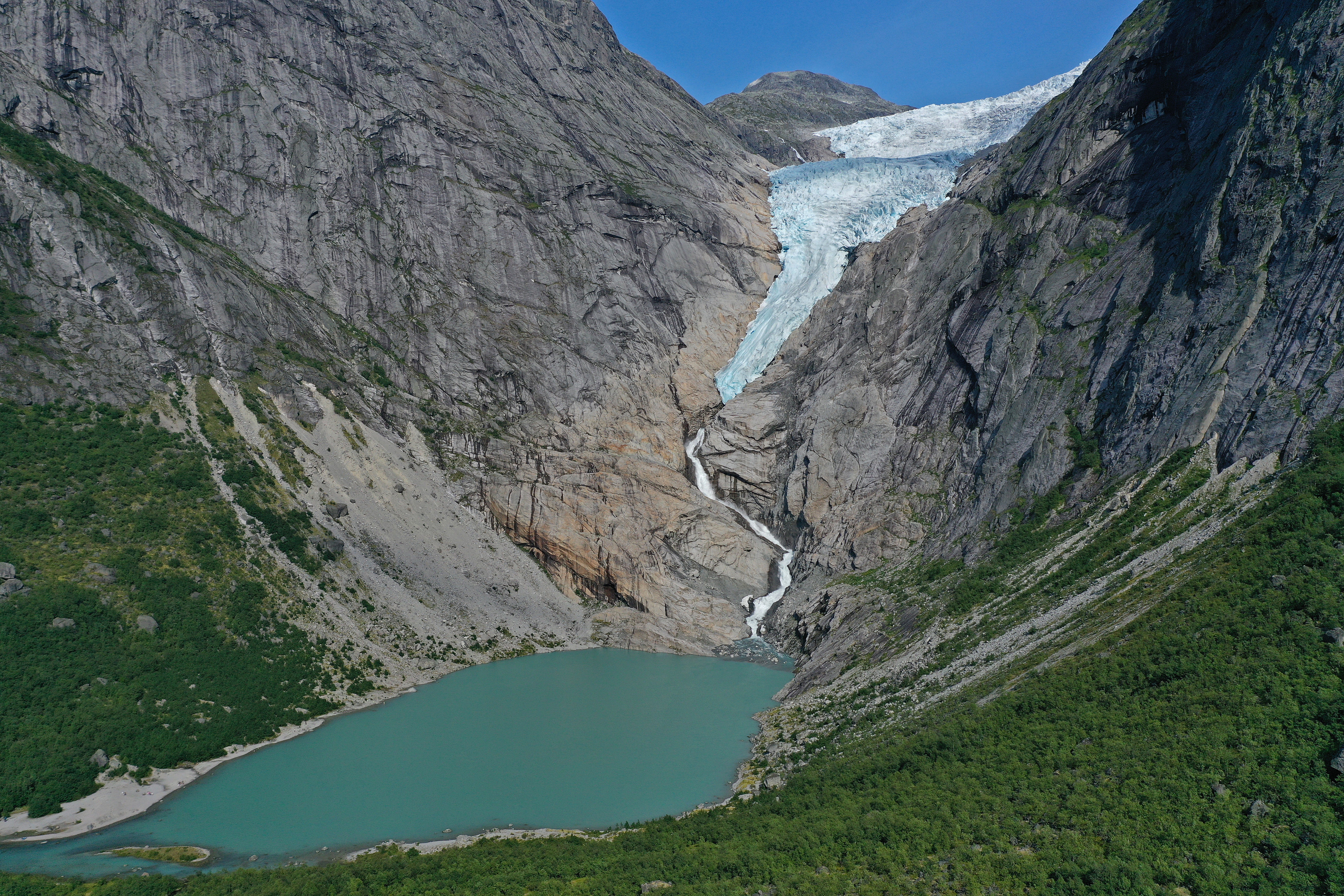World’s glaciers shrinking at ‘accelerating rate’, says largest-ever study
Around 5 per cent of total volume of ice held by world’s glaciers has disappeared in last 20 years, scientist tells The Independent

Your support helps us to tell the story
From reproductive rights to climate change to Big Tech, The Independent is on the ground when the story is developing. Whether it's investigating the financials of Elon Musk's pro-Trump PAC or producing our latest documentary, 'The A Word', which shines a light on the American women fighting for reproductive rights, we know how important it is to parse out the facts from the messaging.
At such a critical moment in US history, we need reporters on the ground. Your donation allows us to keep sending journalists to speak to both sides of the story.
The Independent is trusted by Americans across the entire political spectrum. And unlike many other quality news outlets, we choose not to lock Americans out of our reporting and analysis with paywalls. We believe quality journalism should be available to everyone, paid for by those who can afford it.
Your support makes all the difference.Earth’s glaciers are shrinking at a rapidly accelerating rate, a new large-scale study has confirmed.
From 2000 to 2019, the world’s glaciers lost an average of 267 billion tonnes of ice each year – enough to submerge the entire surface area of Switzerland under six metres of water on an annual basis, the research said.
The rate of glacier ice loss has increased by around 30 per cent over the last 20 years, the research suggests. From 2000 to 2004, Earth’s glaciers lost 227 billion tonnes of ice per year, the study found, but this figure rose to 298 billion tonnes per year between 2015 and 2019.
Over the same period, the annual rate of thinning for glaciers outside of Antarctica and Greenland nearly doubled, the study found, from 36cm a year in 2000 to 69cm a year in 2019.
The findings suggest that Earth’s glaciers have lost around 4 to 5 per cent of their total volume in the last 20 years, the study’s lead author told The Independent.
However, some glaciers are melting much more rapidly than others, he added. For example, glaciers in the European Alps have lost around 30 per cent of their total volume in the last two decades.
The research, published in the journal Nature, is the first to assess how all of the world’s glaciers – nearly 220,000 in total, excluding the Antarctic and Greenland ice sheets – are responding to the climate crisis in the 21st century.
Study lead author Romain Hugonnet, a doctoral student at ETH Zurich and the University of Toulouse, told The Independent: “We provide the first estimate of thinning for all individual glaciers on Earth.
“[Our findings show that] we need to act now regarding climate change to avoid a major shift to the global water cycle that will impact heavily populated regions of the world.”
Glaciers – vast rivers of ice that slowly ooze their way across land – are relied upon by many millions for fresh drinking water across the world.
However, these icy rivers are particularly vulnerable to rising land and ocean temperatures. A study published earlier this month concluded that almost all glacier loss observed since the start of the fossil fuel era can be attributed to human-caused temperature rise.
The new research uses a vast trove of satellite and aerial images – including half a million stereo satellite images – to estimate the total amount of ice lost from Earth’s glaciers from 2000 to 2019.
The scientists also used their data to estimate how the loss of ice from glaciers could be contributing to global sea level rise, which poses a large threat to small island and coastal populations.
The results show that ice loss from glaciers caused global sea levels to rise by 0.74mm each year between 2000 and 2019.
This means glacier ice loss accounted for around a fifth of the total annual sea-level rise observed over the last 20 years. Other major drivers of sea-level rise include the melting of the Greenland and Antarctic ice sheets, and “thermal expansion” – a term for how seawater expands as it heats up.
Prof Andy Shepherd, director of the NERC Centre for Polar Observation and Modelling at the University of Leeds, who was not involved in the study, told The Independent: “Glacier melting accounts for a quarter of Earth’s ice loss over the satellite era, and the changes taking place are disrupting water supplies for billions of people downstream – especially in years of drought when meltwater becomes a critical source.
“Although the rate of glacier melting has increased steadily, the pace has been dwarfed by the accelerating ice losses from Antarctica and Greenland, and they remain our primary concern for future sea-level rise.”
The new study is “quite simply the most comprehensive, detailed and thorough assessment of global glacier mass loss over the 21st century ever undertaken”, added Prof Jonathan Bamber, a leading glaciologist from the University of Bristol.
“Their results show, which should be no surprise to anyone, that glacier mass loss worldwide has been accelerating over the last two decades in response to a warming planet,” he told The Independent.
“If these trends continue, some low-latitude, low-altitude mountain regions will be largely deglaciated by mid-century.
“While the results and work are impressive the headline message is pretty gloomy: glaciers are on the way out – with profound impacts for water resources, natural hazards, sea level rise, tourism and local livelihoods.”
Join our commenting forum
Join thought-provoking conversations, follow other Independent readers and see their replies
Comments